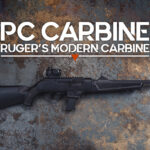
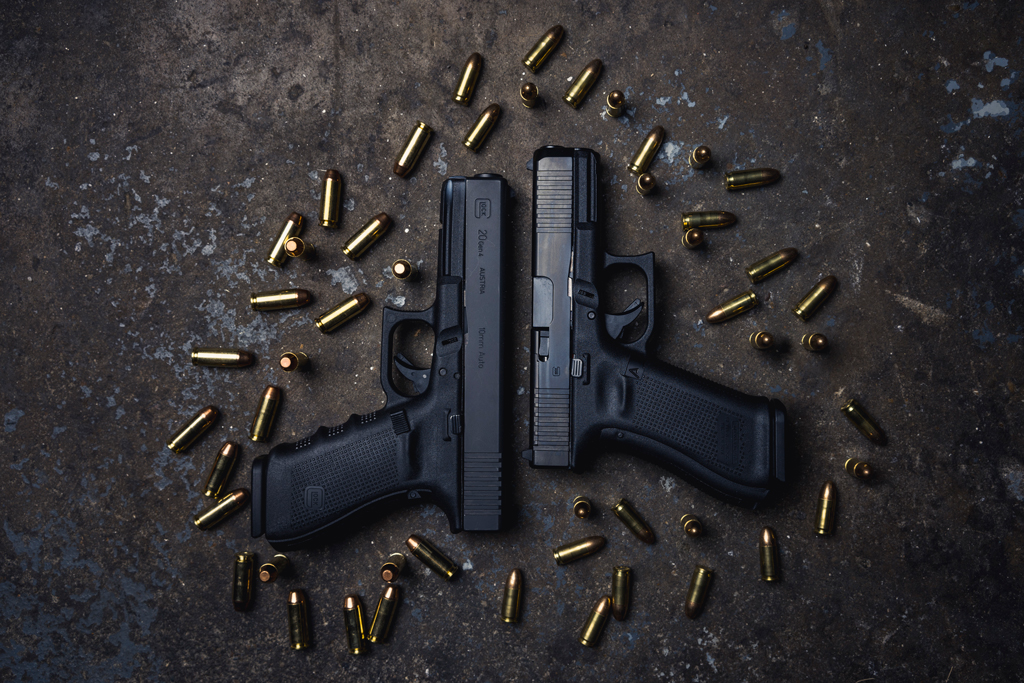
Many gun owners battle it out online comparing the differences between 9mm VS 10mm. So which caliber is faster, more powerful, and most effective? It’s hard to say. Some gun owners prefer to have the additional ammo capacity of 9mm. While others, more interested in performance, may not want to give up the magnum power of the 10mm for additional rounds. So, how can we know which round is better? It really depends on you and your needs.
To determine if a 9mm VS 10mm option is better for you, you’ll first need to look at firearm options and performance. There are a lot more options for handguns chambered in 9mm than there are in 10mm. Many options for the 10mm are built around the classic 1911 platform, although, several manufacturers have produced modern semi-automatic designs in recent years. The 9mm semi-automatic handgun remains a popular choice worldwide. The ease of finding accessories and customizable options gives the 9mm an edge over the classic 10mm platform.
Bullet type matters too. There are many options to consider when deciding which caliber is right for you. There’s a wider variety of 9mm ammo available, but 10mm has all the standard options most shooters would need. The bullet weight will also affect velocity and range, you’ll want to take those factors into consideration when deciding which round is best. Keep reading to learn everything you need to know about the difference between 9mm vs. 10mm rounds, and which one is better for you.
9mm History
The 9x19mm round was developed by Georg Luger and presented to the British Small Arms committee in 1902. This round was initially designed for the PO8 pistol, a design that was famously popular in German military sidearms in the early 1900s.
Lugar improved earlier designs by incorporating a toggle lock with a small, angled grip. Another significant incorporation was a tapered rimless cartridge encasing a bullet that has a diameter of 9mm. They needed to conserve lead production for their pistols in WWII, so they replaced the led core with an iron counterpart that was stronger and more efficient. This is the same design many companies make today.
10mm History
The 10mm round is a much newer invention, as it was originally created by Lieutenant Colonel Jeff Cooper. An early version of this round is referred to as the “.40 Super” and it features a medium pistol cartridge with innovative external ballistics. This original design was upgraded with industry advancements to create the 10mm magnum round we know today. In 1983, the 10mm round was popularized and has been produced since. The reengineering of Cooper’s original concept was done by Dornaus and Dixon Enterprises, Inc. This innovative design has a relatively short, versatile rimless cartridge and is most often used for semi-automatic pistols.
9mm VS 10mm: Power and Ballistics
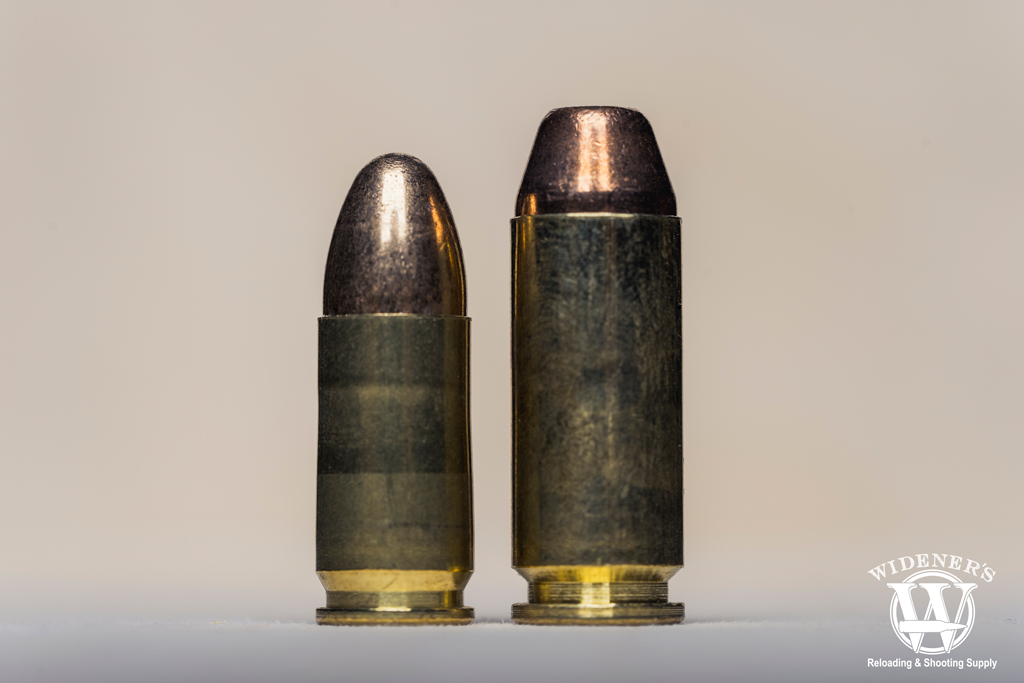
A photo comparing the 9mm cartridge on the left, and the 10mm cartridge on the right.
A quick comparison of the sizes and ballistics of a 9mm round vs. a 10mm round will show you the unique advantages each round has to offer.
| Bullet Diameter | Base Diameter | Case Length | Overall Length | Max Bullet Weight | Max Pressure | |
|---|---|---|---|---|---|---|
| 9mm Ammo | .355″ /9mm | 0.392″ | 0.754″ | 1.169″ | 165gr | 35,000 psi |
| 10mm Ammo | .400″ /10mm | 0.425″ | 0.992″ | 1.26″ | 230gr | 37,500 psi |
As you can see, there are many different specs for each round type, and the specs will drive the overall performance of the round on the target that you are shooting.
Best Self-Defense Ammo Option
If you are looking for a high-performance carry round, both calibers make a strong argument. The bullet weight of the 10mm is heavier but it can also withstand more psi. It has formidable knock-down power and can punch a hole in just about any non-armored surface. The 10mm packs a punch and generally will be able to do more damage to a target than a comparable 9mm load.
If you are looking for a caliber that has minimum recoil, the 9mm round is the round for you. Does it have the same stopping power as 10mm ammo? Maybe not on paper, however, its ballistics are good enough for the military, federal agencies, and law enforcement if that tells you anything. Not only does the 9mm will have less recoil, but it also provides better stability for follow-up shots giving you improved accuracy. 9mm rounds are preferred for self-defense and accuracy while 10mm rounds are preferred for magnum load energy and damage.
9mm VS 10mm Ammo Compared
The 9mm Strengths and Weaknesses
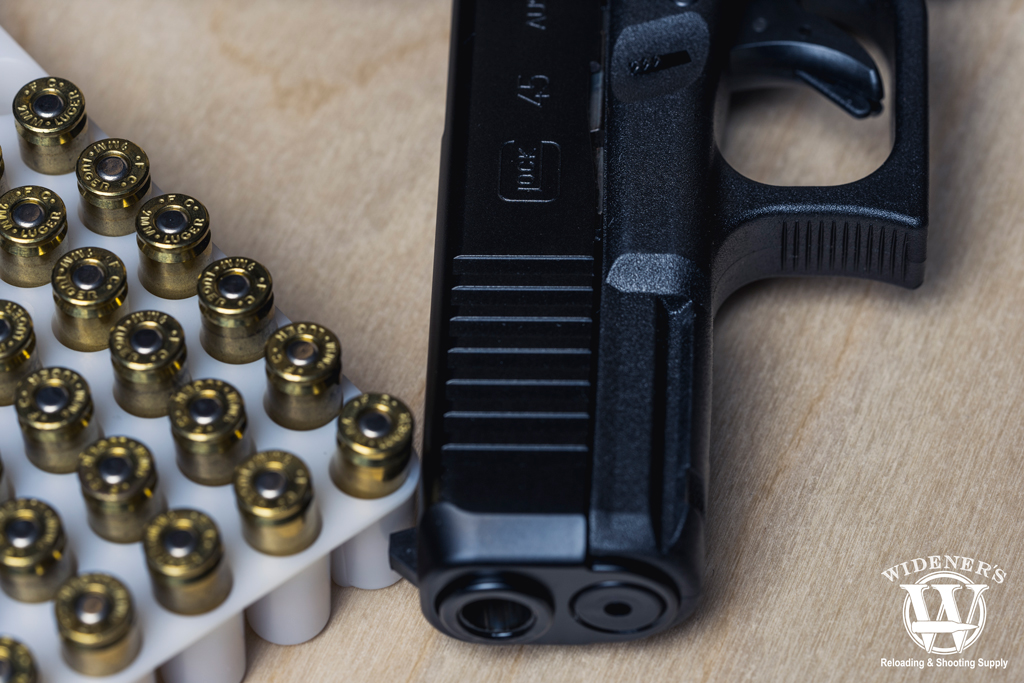
The low-recoil of the 9mm cartridge makes it an excellent self-defense option, allowing for quick follow-up shots.
- Best ballistics for concealed carry
- Many handgun options
- Effective in self-defense situations
- Less recoil
- More bullet types available
- Inexpensive
Not So Good For:
- Less energy than 10mm
- Not really suitable for hunting
9mm ammo is affordable and readily available in a variety of bullet types. There’s also no shortage of 9mm handgun options when compared to 10mm offerings.
| Caliber | Bullet Type | Bullet Weight | Velocity (Muzzle) | Energy (Muzzle) |
|---|---|---|---|---|
| 9mm | Full Metal Jacket (FMJ) | 115gr | 1,180 FPS | 356 FT LBS |
| 9mm +P | Jacketed Hollow Point (JHP) | 124gr | 1,200 FPS | 396 FT LBS |
The 10mm Strengths and Weaknesses
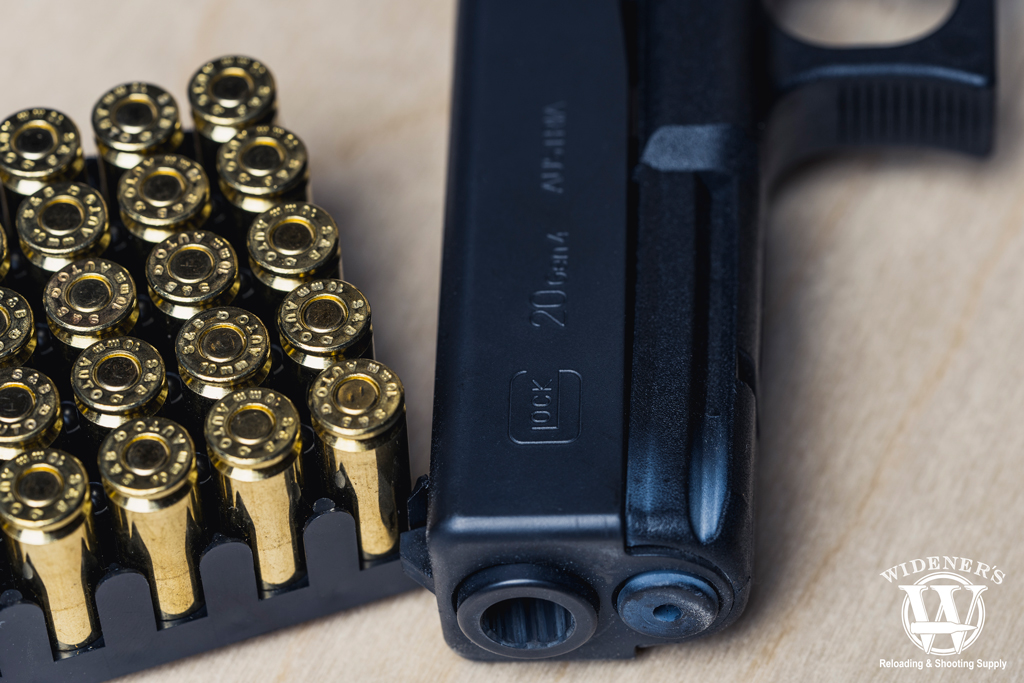
The beefy 10mm offers shooters magnum power with high levels of target penetration and damage.
- Magnum power & energy
- Good self-defense cartridge
- Excellent target damage
- Excellent target penetration
- Suitable for hunting
Not So Good For:
- More expensive
- Additional Recoil
- Less ammo variety
- Fewer gun options
The size and ballistics of these two calibers certainly have differences in performance. Overall, the 9mm is best for protection and concealment, while the 10mm is best for power and penetration.
| Caliber | Bullet Type | Bullet Weight | Velocity (Muzzle) | Energy (Muzzle) |
|---|---|---|---|---|
| 10mm | Full Metal Jacket (FMJ) | 180gr | 1,030 FPS | 424 FT LBS |
| 10mm | Jacketed Hollow Point (JHP) | 200gr | 1,100 FPS | 537 FT LBS |
Who’s The Winner?
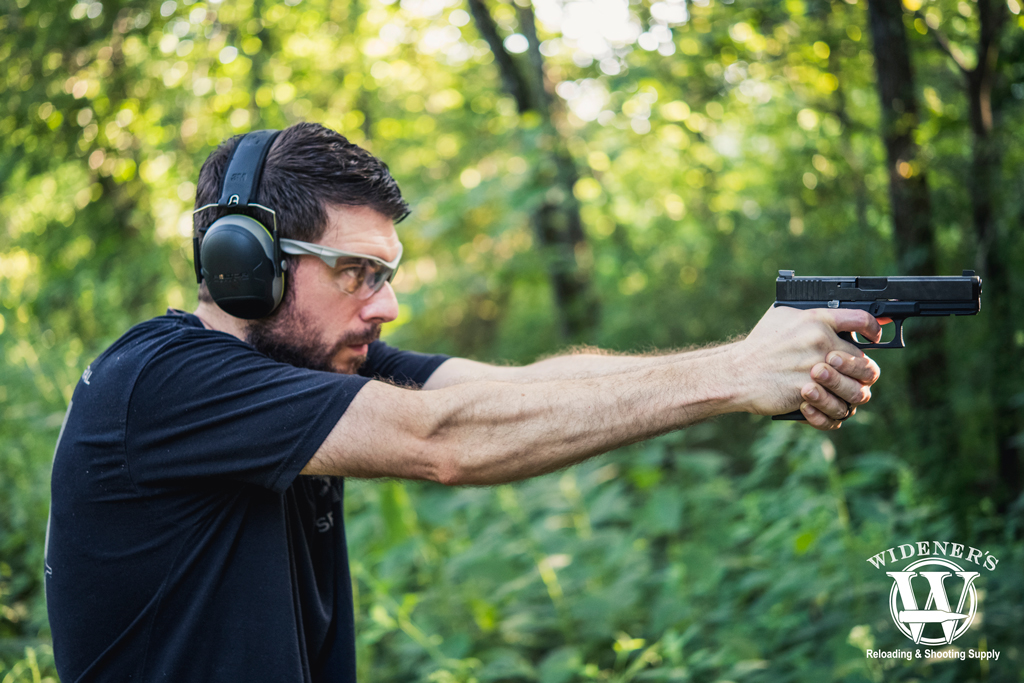
No matter which caliber you choose, be sure to try a wide variety of ammo options to see what works best for you.
As you can see, there are many factors to consider when choosing which caliber you prefer. It comes down to performance vs power and deciding which round you shoot best to reach your performance and accuracy goals. The caliber you choose is your personal preference. That being said, if you are a new gun owner, starting with a smaller caliber is usually a good idea until you master the mechanics of shooting a gun.
No matter if you are an expert or a hobbyist, it is important to educate yourself about the variety of gun and ammo options available on the market. If you plan on buying a compact handgun for concealed carry, a gun chambered in 9mm may be the best option for you. If you are an experienced shooter, check out the magnum power of the 10mm on your next range trip. It’ll put a smile on your face and a spring in your step on your way back to the gun counter.


